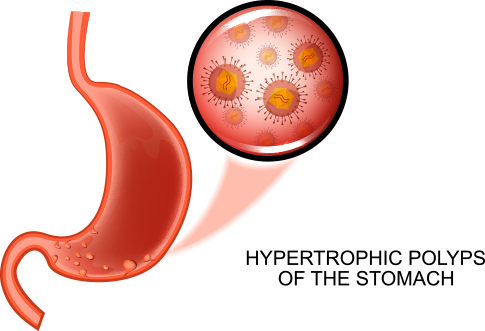
Understanding Familial Polyposis Symptoms and Treatment in Colorado
Welcome to Colorado-based Rocky Mountain Gastroenterology Associates, where we provide comprehensive care for individuals affected by gastrointestinal conditions. Familial Polyposis, also known as Familial Adenomatous Polyposis (FAP), is a hereditary condition that affects the colon and rectum. It is important to understand the causes, symptoms, and treatment options for this condition to effectively manage it.
What Is Familial Adenomatous Polyposis?
Familial Adenomatous Polyposis (FAP) is a genetic condition that causes the development of multiple polyps in the colon and rectum. These polyps are abnormal growths that can become cancerous over time if left untreated. FAP is a rare condition, affecting about 1 in 10,000 people.
What Causes Familial Adenomatous Polyposis?
FAP is caused by an inherited gene mutation that affects the APC gene. This gene normally suppresses tumor growth, but in individuals with FAP, the mutation prevents the APC gene from functioning correctly, leading to the development of polyps. FAP is an autosomal dominant condition, meaning that an individual only needs to inherit one copy of the mutated gene to develop the condition.
Who Is at Risk for Familial Adenomatous Polyposis?
Individuals with a family history of FAP are at an increased risk of developing the condition. Inherited mutations in the APC gene can be passed down through generations, making it important for individuals with a family history of FAP to undergo genetic testing and screening.
What Are the Symptoms of Familial Adenomatous Polyposis?
The symptoms of FAP can vary from person to person, but often include:
- Development of multiple polyps in the colon and rectum
- Blood in the stool
- Changes in bowel habits
- Abdominal pain
- Unexplained weight loss
It is important to note that many individuals with FAP may not experience any symptoms until later stages of the condition.
How Is Familial Adenomatous Polyposis Diagnosed?
There are several methods for diagnosing Familial Adenomatous Polyposis (FAP), including:
- Genetic Testing – Genetic testing is the most reliable method for diagnosing FAP. This test analyzes a patient’s DNA to detect the presence of a mutation in the APC gene, which is responsible for causing FAP. If the patient tests positive for the APC gene mutation, it is highly likely that they have FAP. Genetic testing can also be used as a method of familial polyposis screening for family members of patients with FAP who may be at risk for inheriting the gene mutation.
- Colonoscopy – Colonoscopy is a procedure that allows doctors to examine the inside of the colon and rectum using a flexible tube with a camera attached to it. During the procedure, the doctor can identify the presence of polyps in the colon and rectum, which are characteristic of FAP. If polyps are detected, a biopsy can be taken to confirm the diagnosis of FAP.
- CT Scan or MRI – CT scan or MRI imaging may be used to detect the presence of polyps or tumors in the colon and rectum. These imaging tests can help identify the size and location of the polyps, which can aid in diagnosis and treatment planning.
It is important to note that a combination of these methods may be used for diagnosing FAP, depending on the patient’s specific circumstances. Additionally, regular screening and monitoring of individuals with a family history of FAP is crucial for early detection and management of the condition.
How Is Familial Adenomatous Polyposis Treated?
The treatment for FAP depends on the severity of the condition and the presence of cancerous polyps. Surgery to remove the colon and rectum may be necessary in advanced cases of FAP. Other treatment options include medications to manage symptoms and regular colonoscopy screenings to monitor the development of polyps.
Request an Appointment Today
If you or a loved one has a family history of FAP or is experiencing symptoms of the condition, please contact Rocky Mountain Gastroenterology Associates to schedule a screening and discuss treatment options. Our team of experienced gastroenterologists is dedicated to providing comprehensive care for individuals affected by gastrointestinal conditions.
Go back